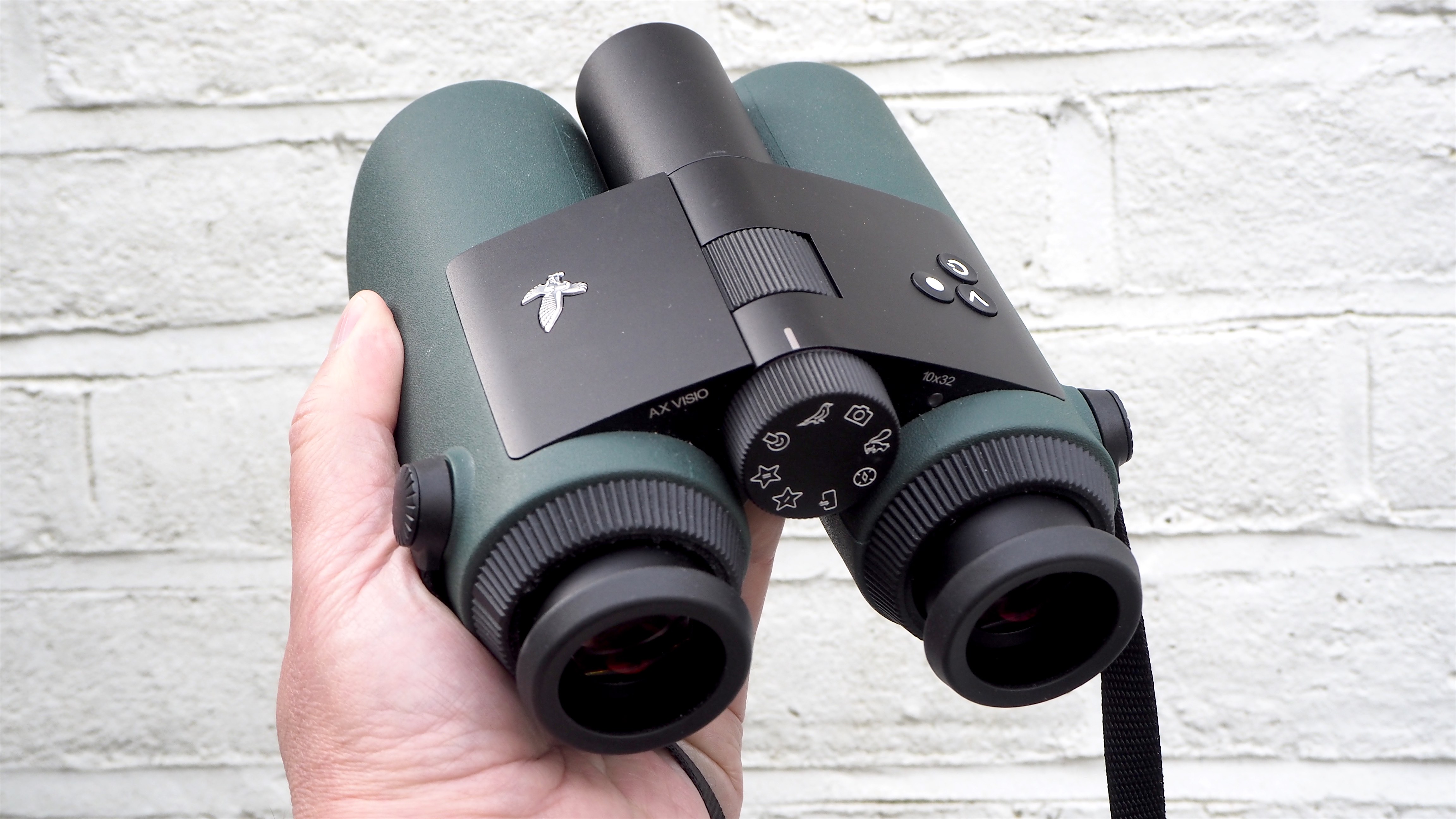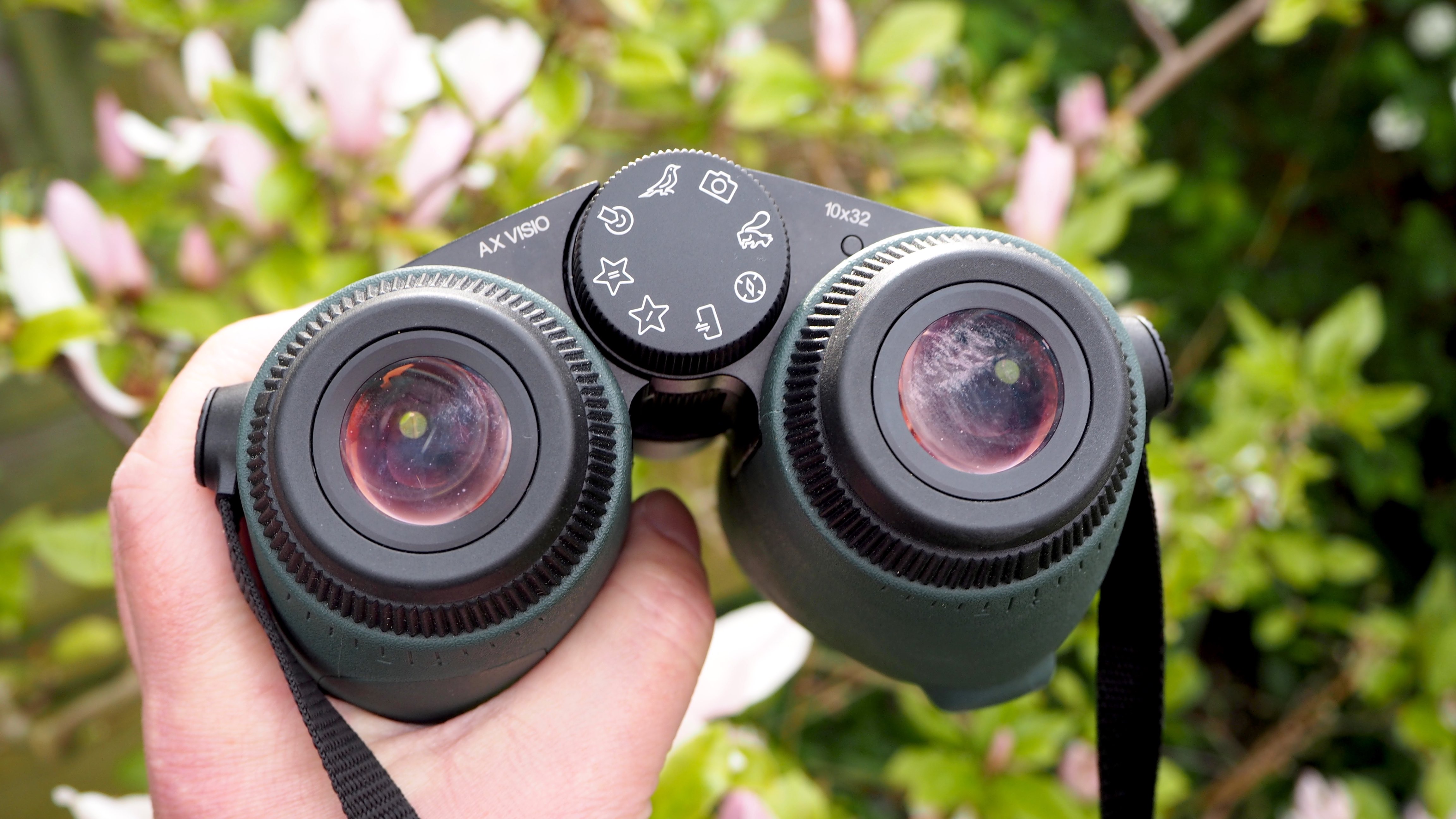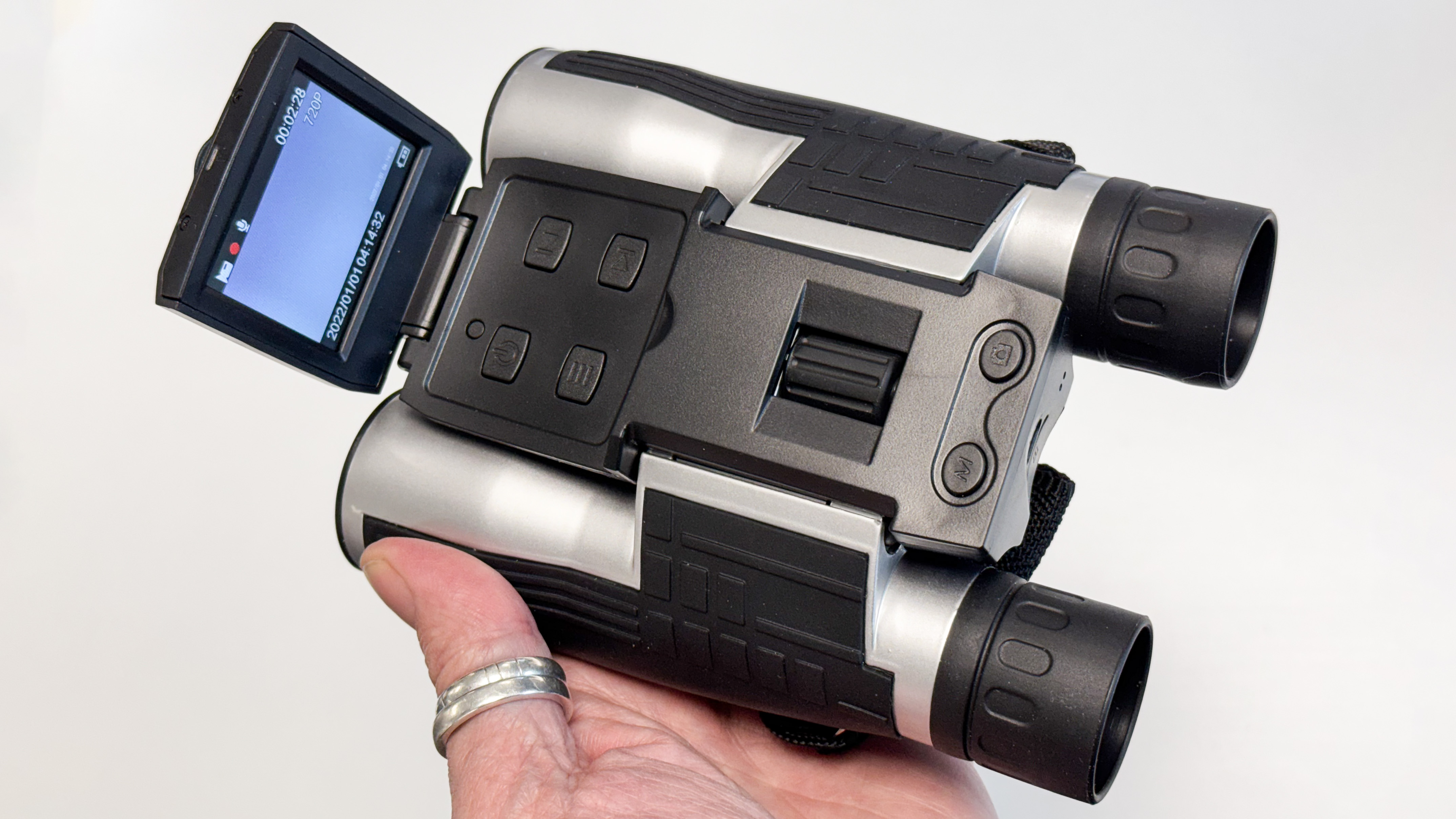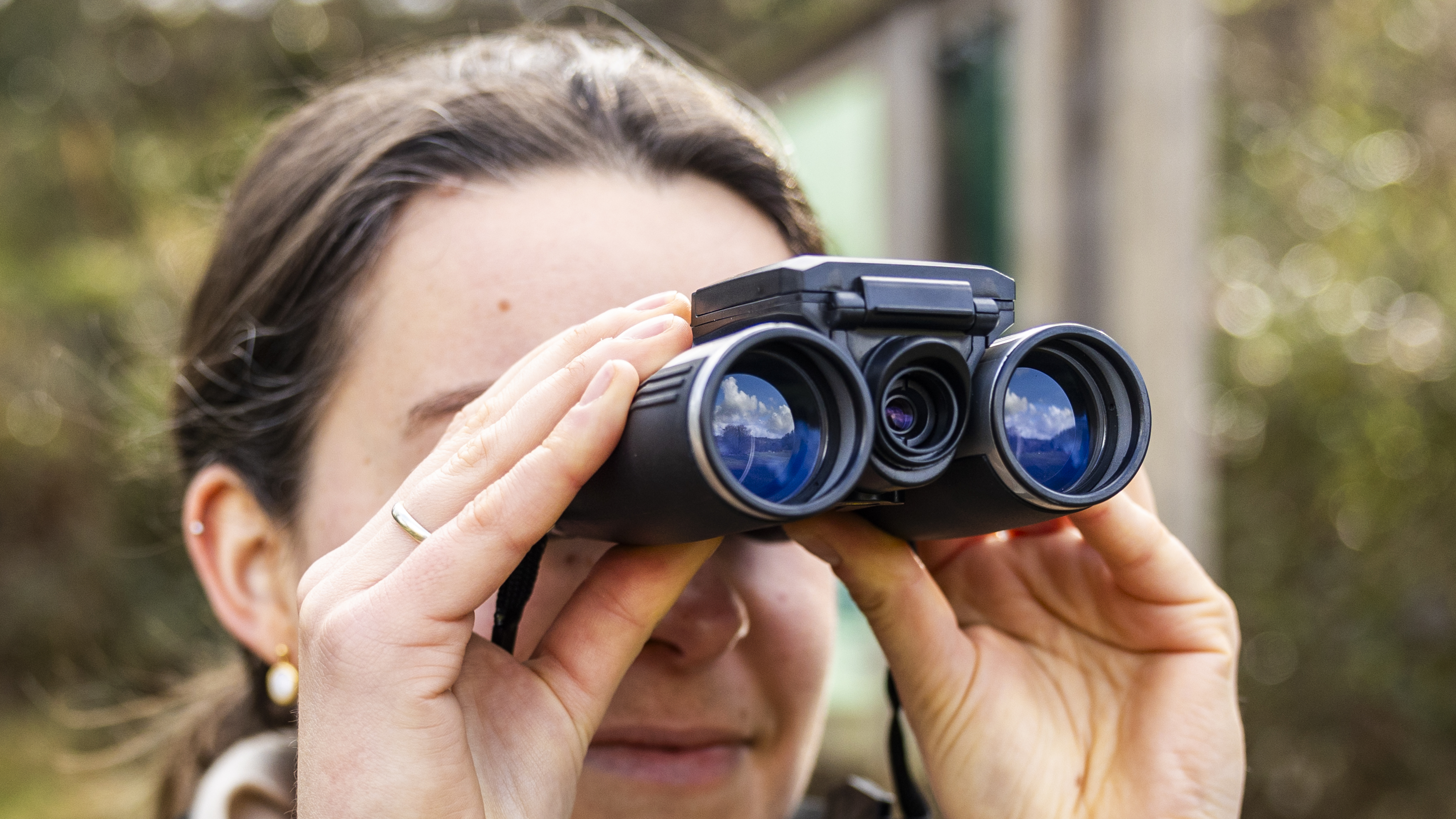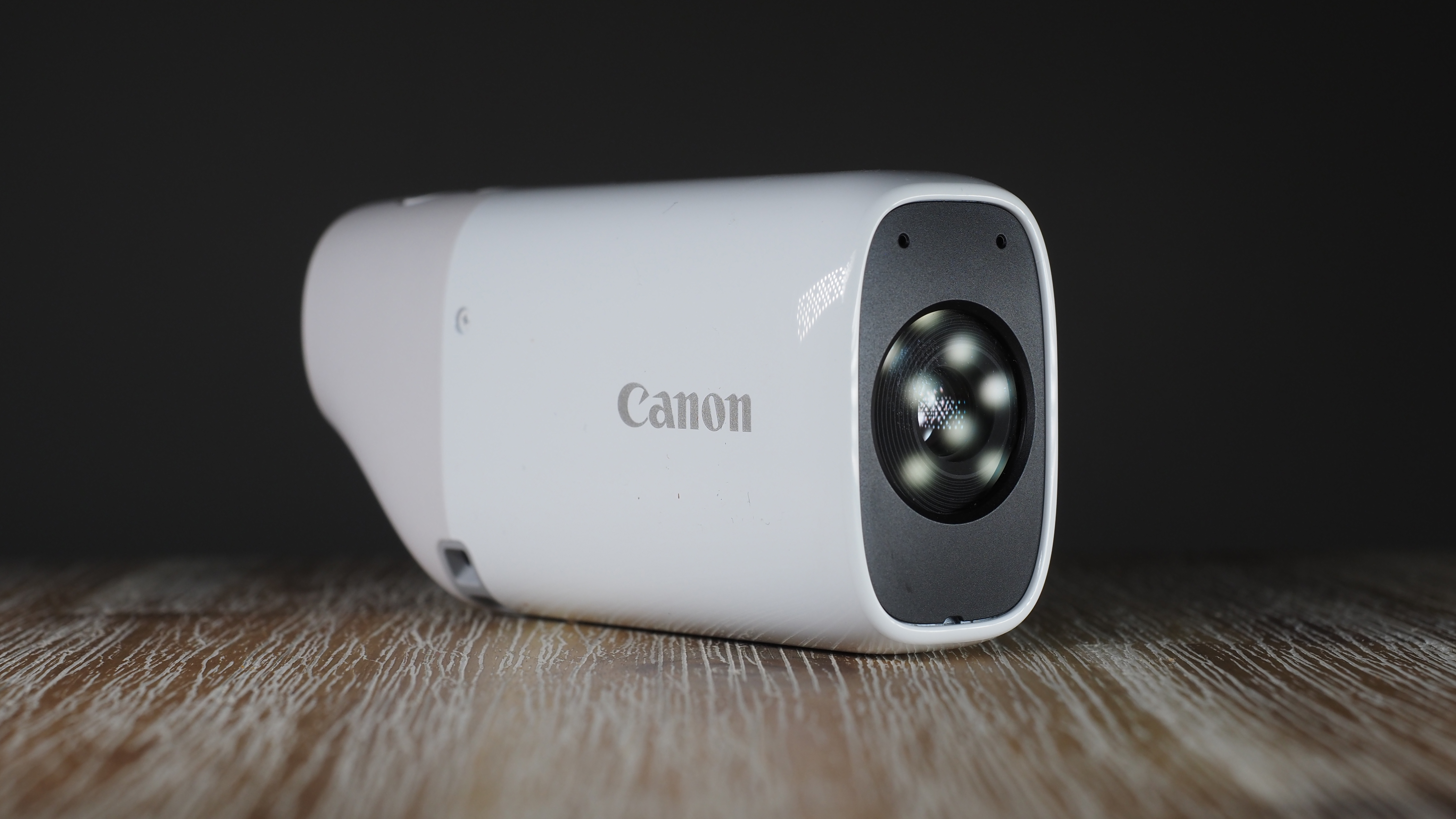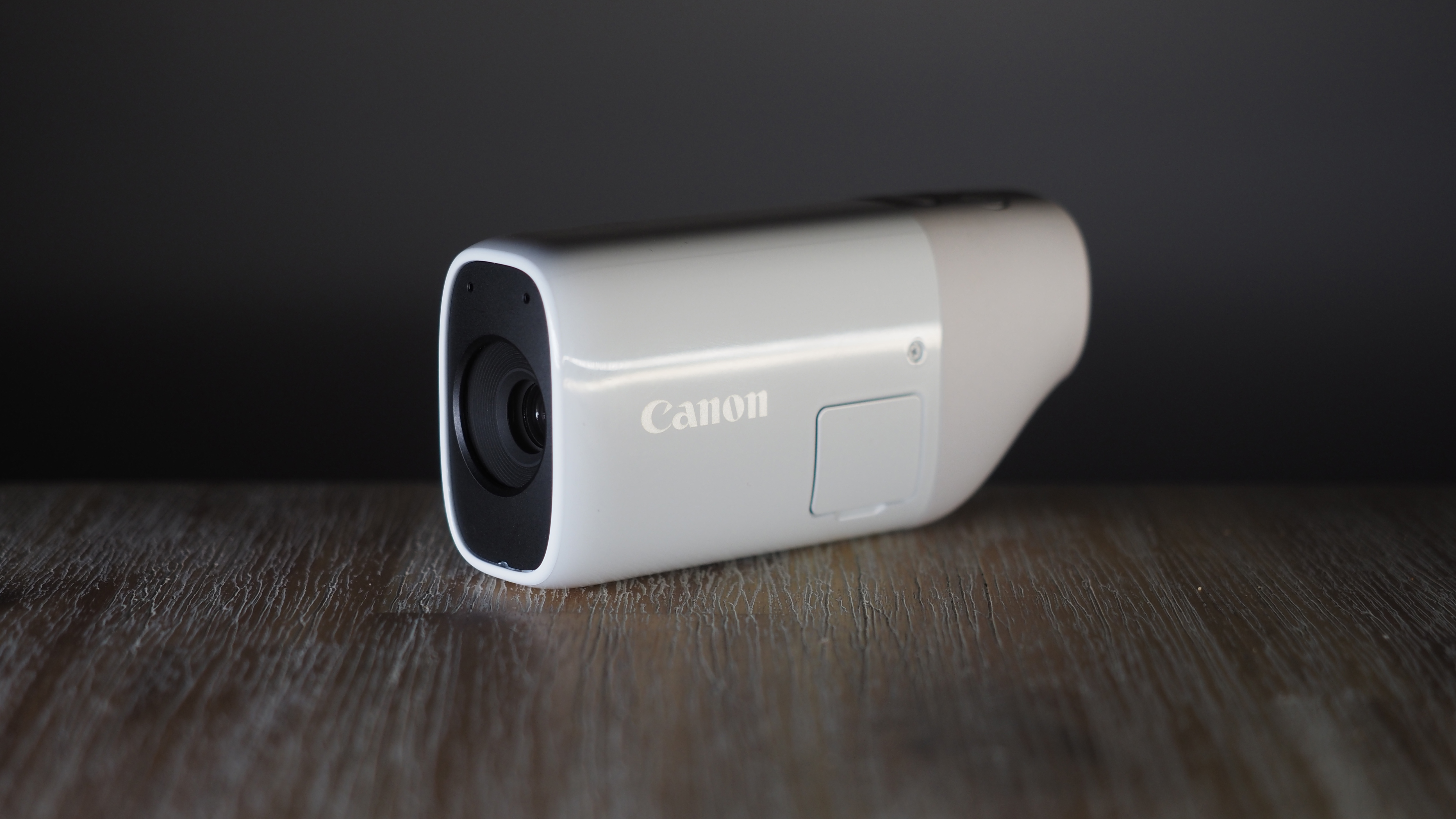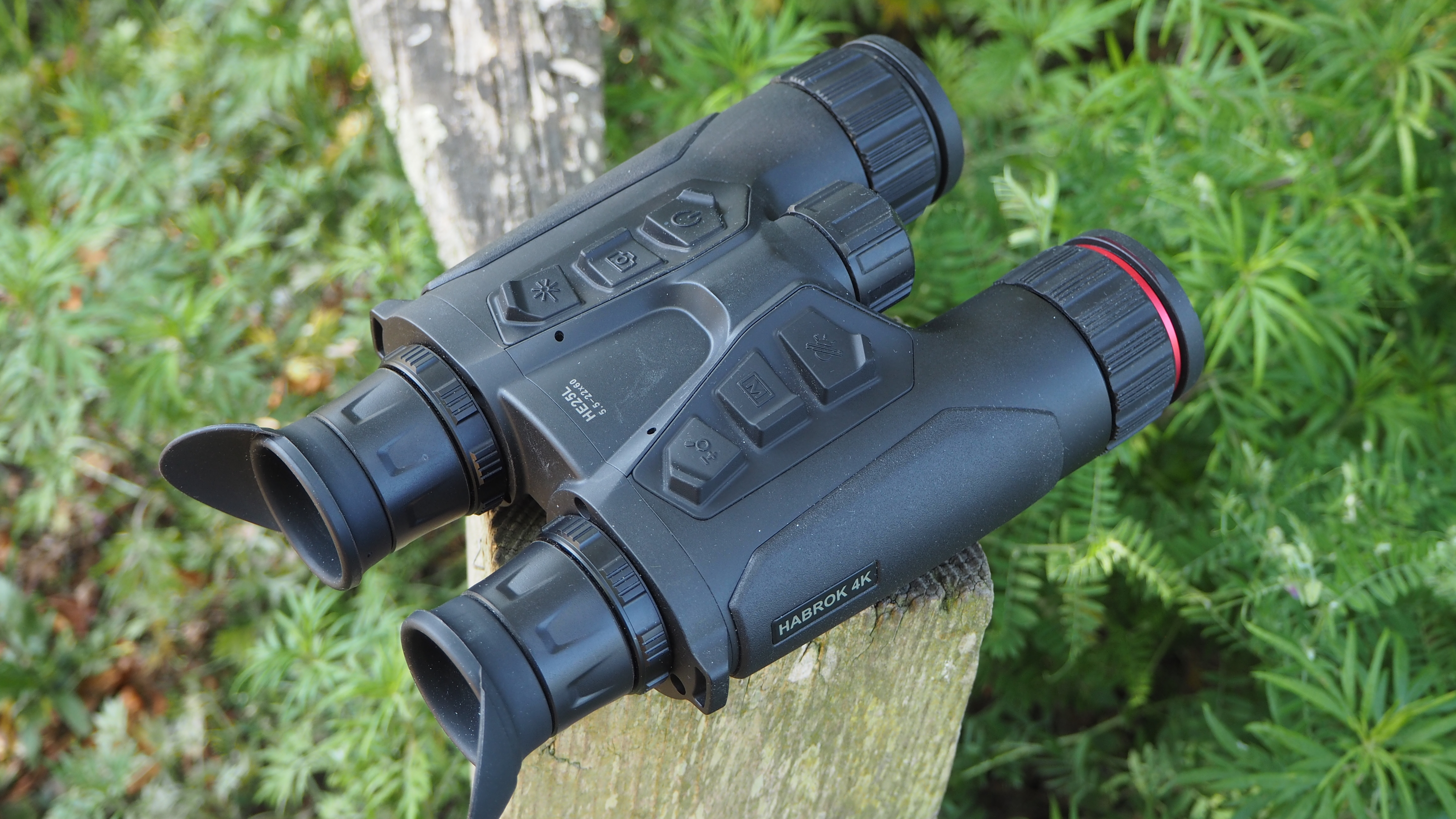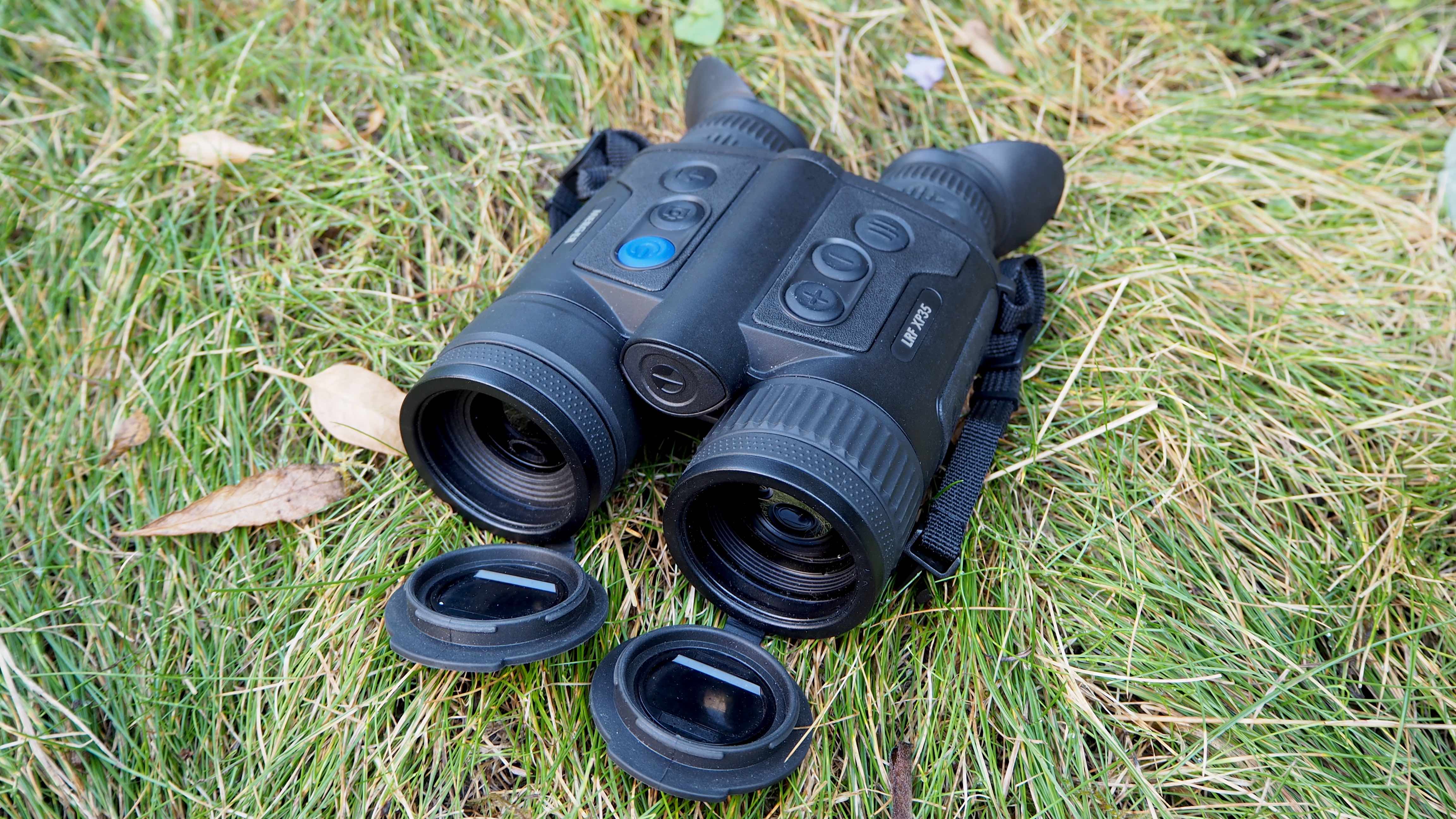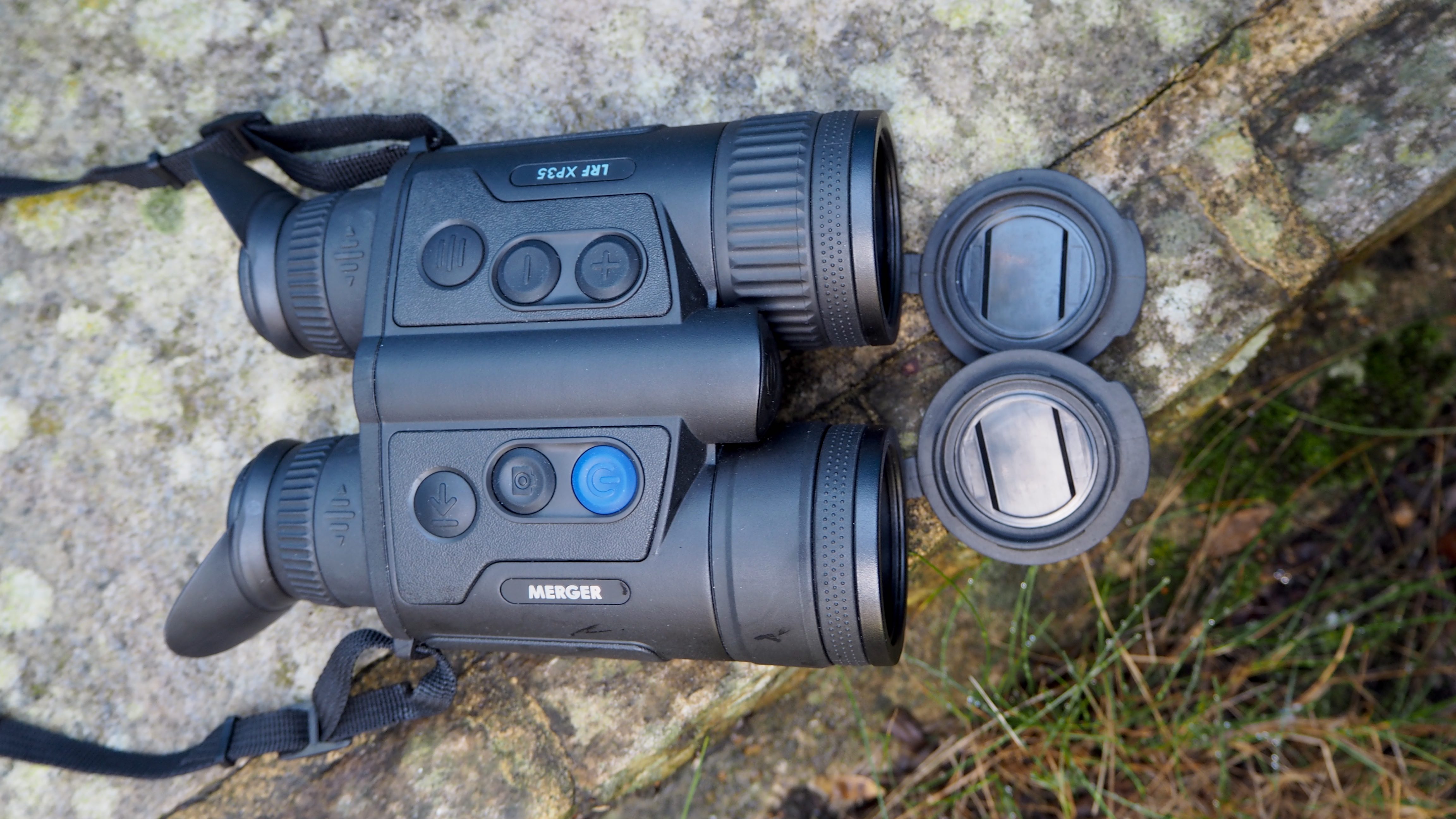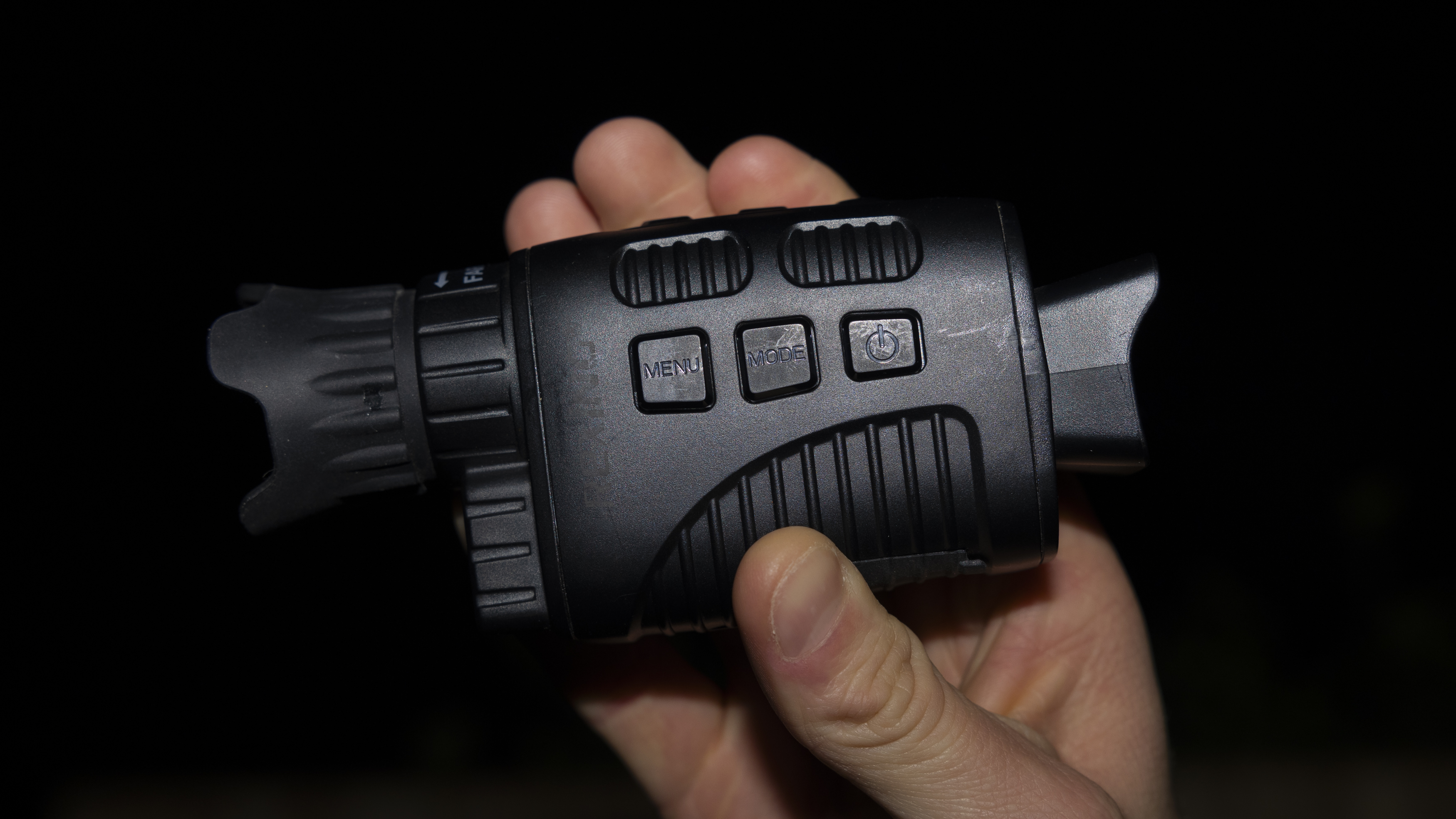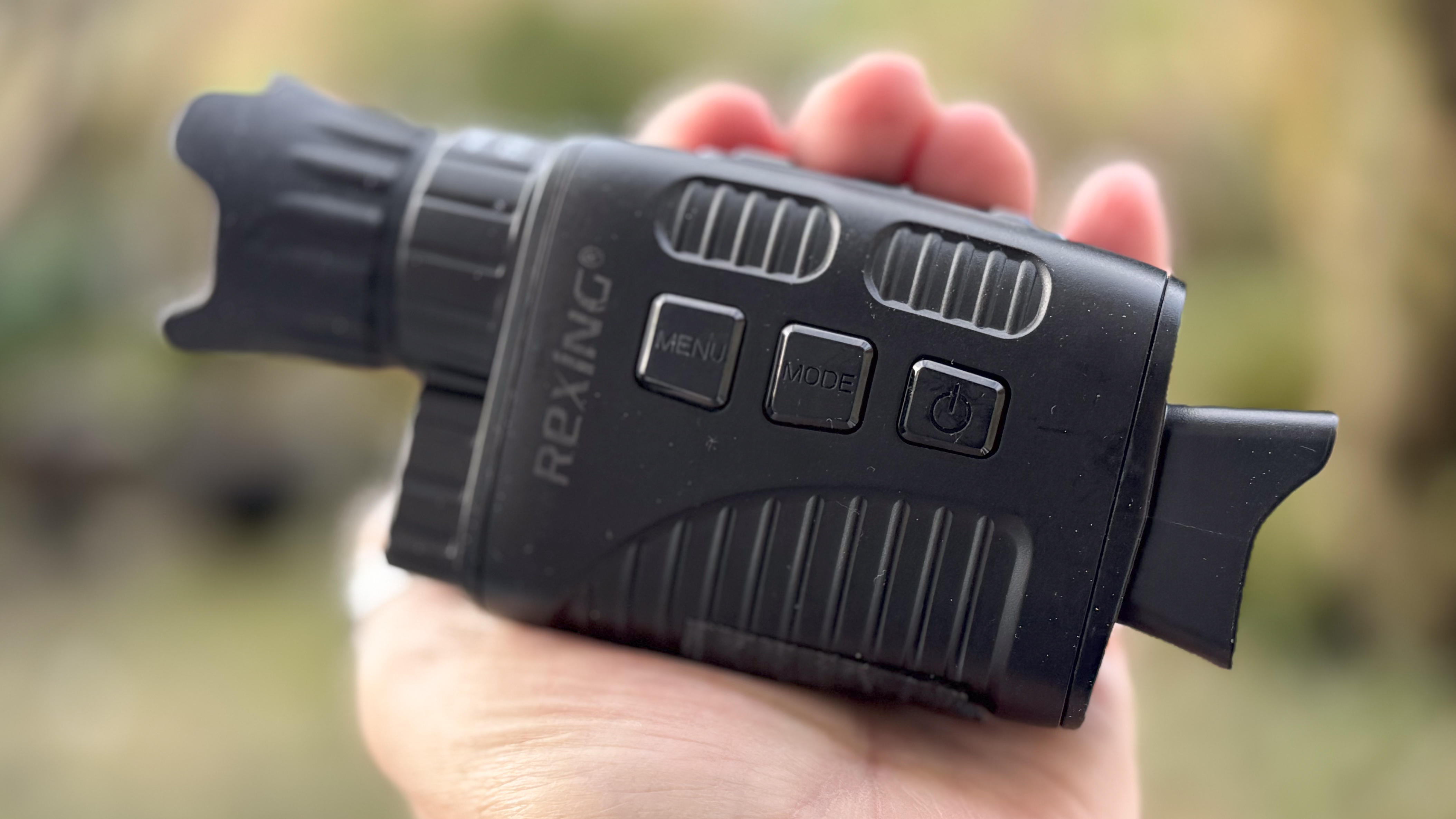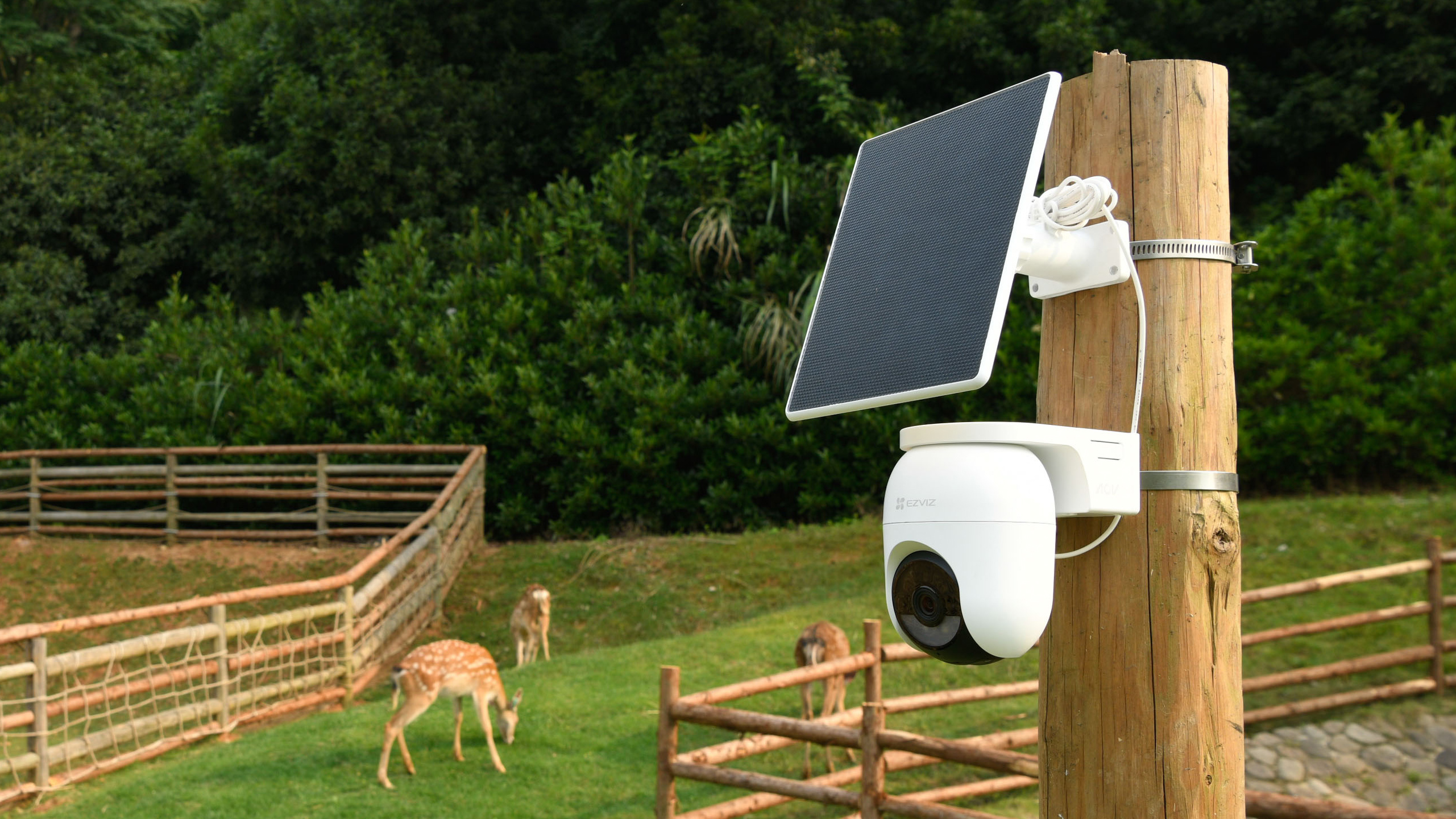The best binoculars with cameras in 2026
Take photos or videos of faraway objects with the best binoculars with cameras
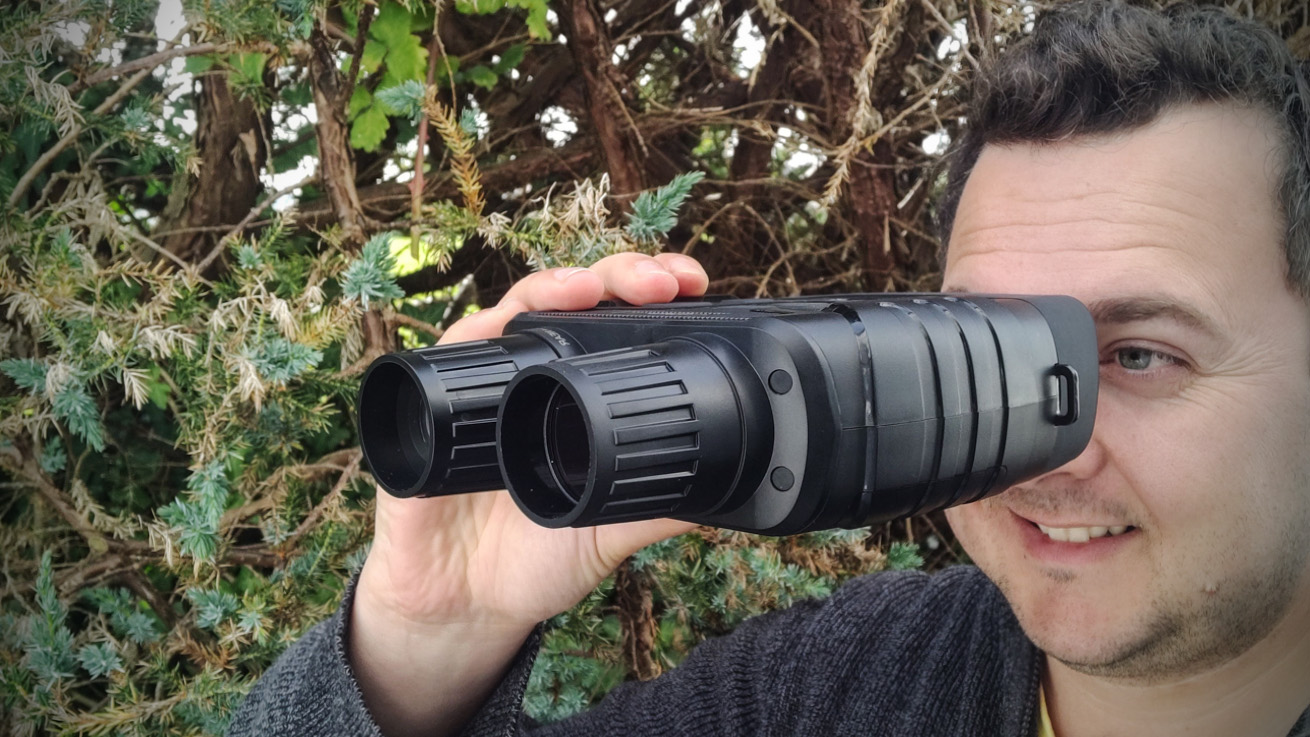
The best camera deals, reviews, product advice, and unmissable photography news, direct to your inbox!
You are now subscribed
Your newsletter sign-up was successful
Binoculars with built-in cameras do more than bring distant subjects into view - they let you capture the moment as it happens. Rather than balancing a phone against an eyepiece or wrestling with a clumsy digiscoping setup, binoculars and monoculars that record internally offer a far neater, more practical solution. It remains a niche corner of the optics world, but there are now several genuinely capable options worth considering.
I’ve tested a broad range of these devices in real-world conditions, including compact camera monoculars from Canon and Rexing. Some are designed purely for daylight observation, others add night-vision capabilities for wildlife watching or security use, and a smaller number go further still with thermal imaging to reveal heat signatures invisible to the naked eye.
My reviews focus on resolution, magnification, objective lens size, and - most importantly - how each device performs out in the field. And if you decide you’d rather stick with traditional optics and leave recording out of the equation, our guide to the best binoculars is a solid place to start.
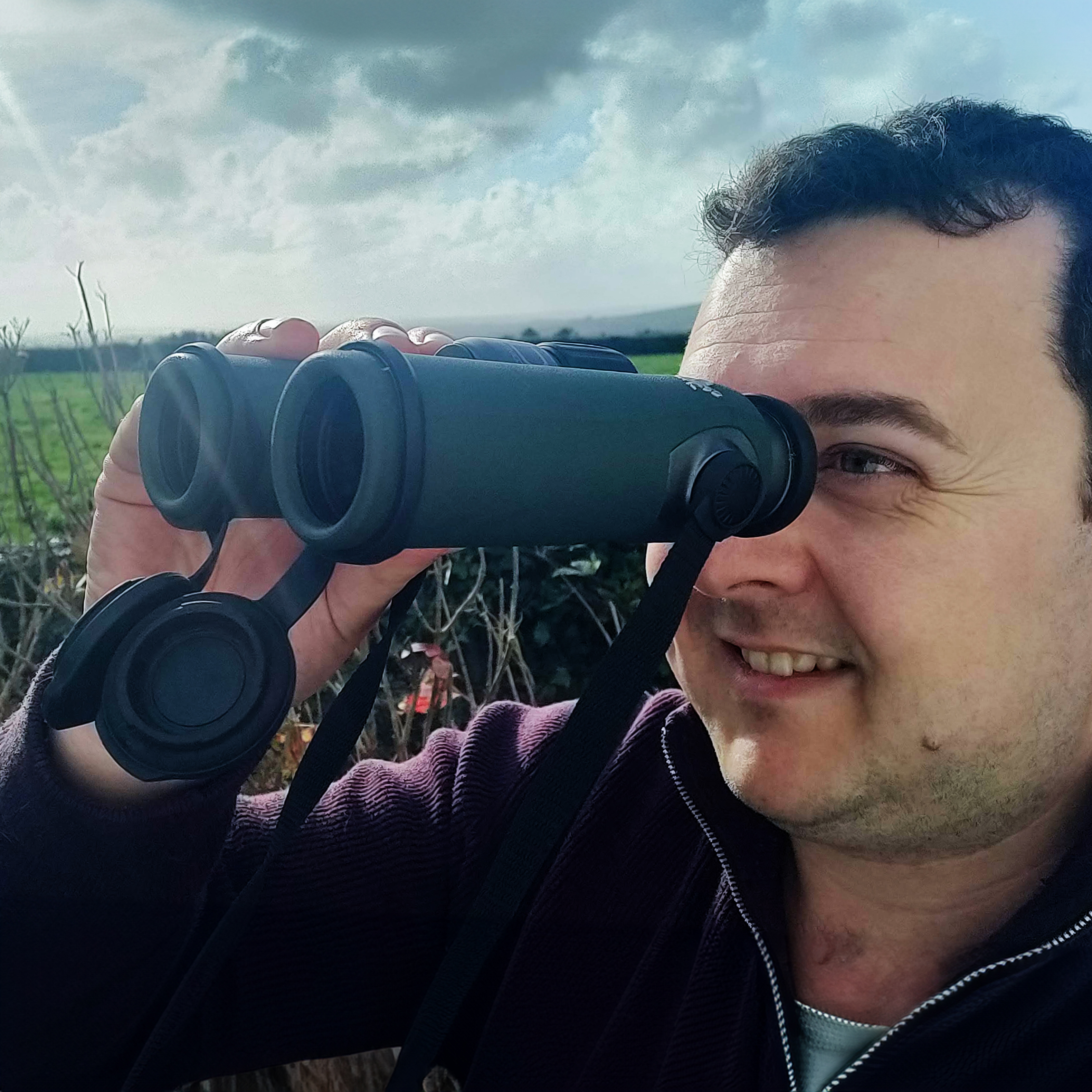
For nearly two decades, Sebastian worked as a pro sports photographer, specializing in equestrianism. Living in Cornwall, he is also a big country sportsman who can often be found in or around the shooting field, sailing on the open sea, or taking part in other country pursuits, and quite often has either a pair of binoculars, a monocular, or a scope in his hand.
The best binoculars with cameras in 2026
Why you can trust Digital Camera World
Best camera binoculars overall
Specifications
Reasons to buy
Reasons to avoid
✅ High quality optics: Swarovski is a master of binocular quality, and this pair doesn't disappoint
✅ Futuristic AI tech: a digital overlay can identify the birds you spot without you taking your eye off them
❌ If you have a limited budget: the optical quality, beautiful design, and AI tech combine to make a high ticket price
Swarovski is a luxury binocular brand, with top-quality optics that demand top prices. The Optik AX Visio is its most ambitious pair of binos to date adding state-of-the-art AI electronics that don't just give you a great view of the subject, but help you identify it too
These world's first smart binoculars can identify the bird or animal that you have spotted - with some 9,000 species in its databank to work from. In our tests, it correctly identified half a dozen different types of wildfowl - but then failed to a freshwater turtle. But this digital overlay is impressive nonetheless – and you can of course capture 13MP stills or Full HD video of your sighting for further research back at base. You should note, however, that you need to pair the binos with your smartphone in order to replay the images that you shoot.
The optical quality of the binoculars is impressive, and weighing just over 1kg, these are lighter than you might expect. The 10x32 specification means that these are best used in daylight - and are not bright enough for low-light observation.
Sure these are expensive, but they are beautifully designed - and offer a level of functionality that simply is not available from other binoculars. As such these are much better value than they might first appear.
Read our full Swarovski Optik AX Visio 10x32 review for further details.
Final thoughts
The Swarovski Optik AX Visio binoculars feel like a glimpse into the future of optics, blending Swarovski’s trademark clarity with cutting-edge digital intelligence. They’re undeniably a premium investment, but for those who want more than just world-class glass – from smart species recognition to seamless image sharing – they deliver an experience that goes far beyond traditional binoculars. For serious birders, wildlife enthusiasts, and anyone who wants their optics to be as advanced as their adventures, the AX Visio makes a compelling case.
The best budget binoculars with camera
Specifications
Reasons to buy
Reasons to avoid
✅ Unique design: Features a flip-up 2-inch LCD display screen on top, rather than integrating a viewfinder into the binoculars.
✅ Versatile usage: Suitable for wildlife watching, concerts, sports, or general surveillance.
❌ Image quality: Video and stills quality that we got from our tests was disappointing
❌ No night vision: Lacks any night vision capability, limiting low-light usability.
This relatively compact pair of binoculars is more plactic-y looking and don't have night vision, but they're cheap and portable, weighing just 450g. The design is somewhat unusual in that they have a flip up 2-inch LCD display screen on its top plate rather than incorporating the camera viewfinder into the binoculars themselves.
The camera itself sits between the lenses at the front and the shutter button is between the eyepieces, designed to fall under the forefinger of the right hand. In essence, the binoculars and the digital camera operate as separate devices.
The core features here are a maximum 12x magnification married to a 32mm objective lens. Once again, 5MP stills and 1080P video are recorded to a removable microSD card, with up to 32GB capacity supported.
The slot is between the eyepieces. The operational range is claimed to be approximately 500 metres, but we found that images at this distance are not a lot to look at. Video and stills quality is inferior to that you would get from a mobile phone - but still could prove useful as a record shot.
Note that this pair of binoculars is sold under a variety of brand names, depending on where you shop, including Camonity, Dreamy, Ansee and Acuvar. This may be the reason for some apparent variations in what exactly ships – some customers have reported being surprised to find a memory card included.
That may not inspire confidence, but we think that at this price, these provide good value for watching wildlife, concerts, sports or more general surveillance situations where you simply want to capture a register of something far away.
See our full Camonity 12x32 binoculars review
Final thoughts
The Camonity 12×32 R binoculars are an affordable, entry-level choice that blend 12× magnification with basic photo and video recording. They’re lightweight and fun for casual use, but the camera works independently from the eyepieces, so what you capture isn’t always what you see, and image quality is limited compared to modern phones. With a plastic build and no weatherproofing, they’re best suited to beginners or kids rather than serious outdoor use. For simple snapshots and occasional viewing, they offer fair value, but enthusiasts will want to look higher up the ladder.
The best binoculars with camera for travel
Specifications
Reasons to buy
Reasons to avoid
✅ High image quality: Surpasses other binoculars in image quality, as expected from Canon.
✅ Autofocus: Makes the device easier to use, ensuring sharp images without manual adjustment.
❌ Short battery life: Only lasts around one hour or 150 images, which may require frequent recharging.
❌ No microSD card included: Requires separate purchase of a microSD card for image storage.
OK, so this isn't a pair of binoculars, but it actually beat the binoculars on our list for image quality. Since it's made by the camera manufacturer Canon, you would hope image quality to be good, but we were still pleasantly surprised. The built-in image stabilization plays a role here, and we also loved the inclusion of autofocus, which can make using the device much easier.
Weighing just 145g and available in either black or white, it's conveniently portable and can easily be slipped into a jacket pocket. It also fits snugly in the grip of the palm while resting against the eye socket in use, further helping to ensure a steadier view. The optical zoom is relatively modest compared to other options on our list, at just 3x, but it can be expanded from its maximum 400mm optical setting via 2x digital zoom to provide a maximum focal length equivalent to 800m.
Video capture resolution is a respectable Full HD 1080P at 30fps, while 12MP stills are provided via a 12.1MP 1/3-inch CMOS sensor. The closest focusing distance is one metre. Wi-Fi and Bluetooth connectivity means that images (saved on a microSD, not supplied) can be shared with a smartphone via the Canon Connect App, which we find a convenient option.
We were less impressed with the mere one-hour battery life, or around 150 images. The positive here is that the lithium-ion battery can be recharged via USB. There's no infrared night vision facility, so this is an option for daytime use.
Read our full Canon PowerShot Zoom review for more details.
Final thoughts
The Canon PowerShot Zoom is a clever little gadget that combines a digital monocular with a super-compact camera. Its three-step zoom up to 800 mm makes it great for casual birdwatching or sports, and the lightweight design with Wi-Fi and Bluetooth sharing adds to the appeal. However, image quality is modest, especially in low light or at longer focal lengths, so it’s best seen as a fun digital spotting scope rather than a serious camera. For quick, pocket-sized reach it’s a neat option, but enthusiasts will likely want more.
The best night and thermal vision binoculars with camera
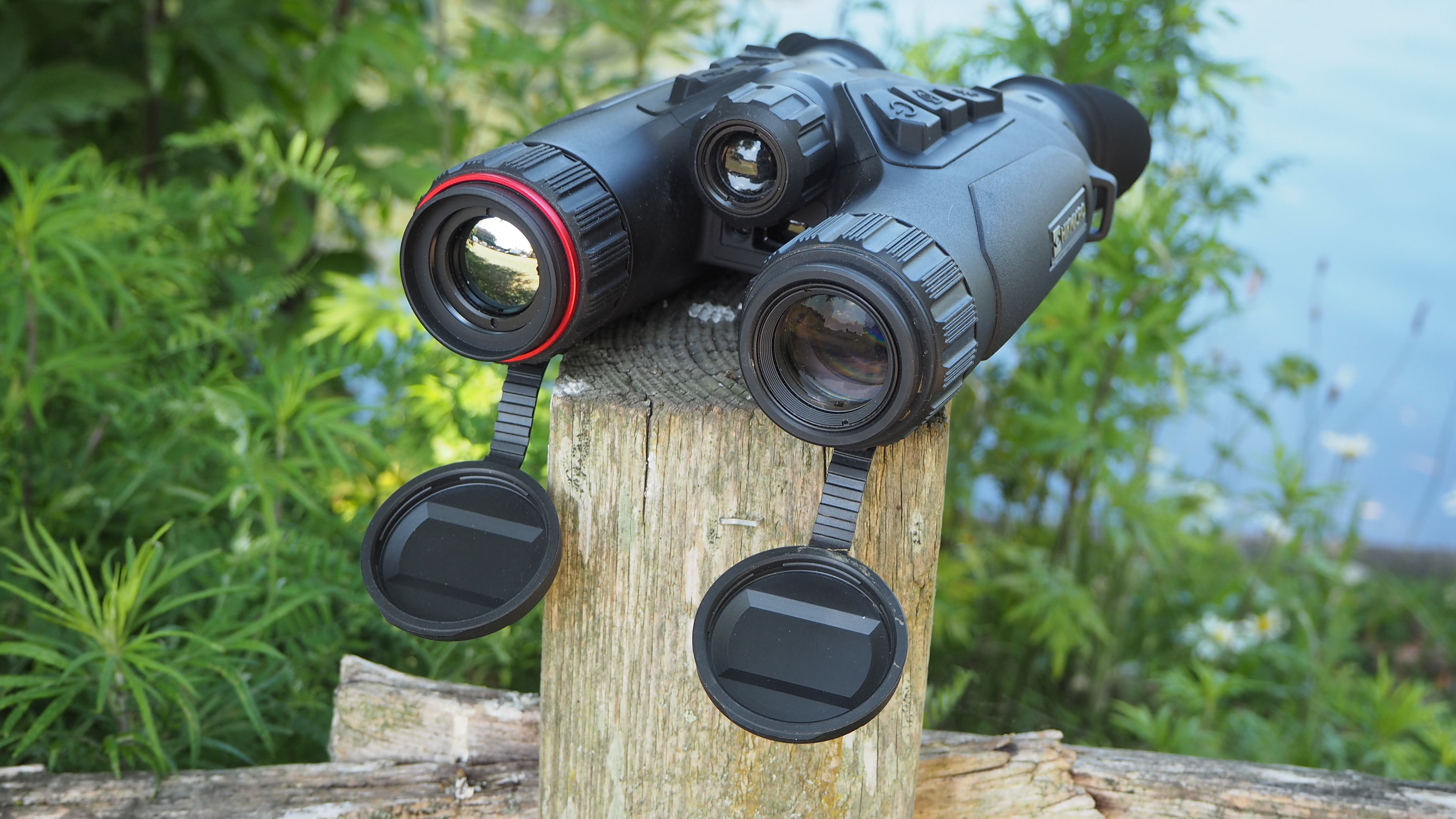
Specifications
Reasons to buy
Reasons to avoid
✅You want a single tool that fuses 4K daylight/low-light imaging with thermal overlay for seamless multi-spectrum observation.
✅You want intuitive ergonomics and handling - lightweight for its class (≈795g), a large OLED, separate focus controls, and easy navigation for real-time use.
❌You want to factor in that identification ranges (especially for detailed thermal ID) top out around a few hundred meters in practical conditions, and performance can degrade in humidity.
❌You want to accept some latency and compromise when blending or switching between thermal and optical overlays, which can interrupt fast-paced tracking.
The HikMicro Habrok 4K HE25L proves its worth once you get past the initial learning curve of its dual-use controls and menu navigation in low light. After that, it becomes a solid all-in-one day/night observation tool: the 4K optical channel combined with thermal overlay lets you detect heat signatures and immediately place them in context without swapping gear. Built-in range estimation and the ability to record what you’re seeing extend its usefulness for wildlife, search, or security work.
Power and endurance are strong points. With replaceable 18650 batteries and power-saving features, you can stay in the field longer without interruption. The ergonomics - distinct focus controls and a clear eyepiece display - are designed for sustained use, even if the device’s weight makes prolonged handheld steadiness a consideration. The integrated rangefinder adds practical distance data when pairing thermal detection with visual confirmation.
There are compromises: the thermal sensor (256×192) favors detection over fine detail, so thermal imagery is softer than the optical feed, and higher digital zoom can introduce instability unless braced. Switching overlay modes or adjusting settings by feel in the dark can lead to occasional fumbling until familiarity builds, and there’s some latency when blending views. These aren’t fatal flaws, just predictable trade-offs in a consolidated multi-spectrum unit.
In the end, the Habrok 4K HE25L delivers a coherent, around-the-clock observation capability in a single package. For users who need detection, identification, and documentation across daylight, low light, and thermal domains without assembling separate systems, its combination of features and price makes it an attractive, practical alternative to standalone night vision or thermal rigs.
Read more: HikMicro Habrok 4K HE25L review
Final thoughts
The HikMicro Habrok 4K HE25L binoculars deliver impressive versatility, combining 4K colour optics, night vision, thermal imaging, and a laser rangefinder in one rugged package. With long battery life, waterproofing, and the ability to record what you see, they’re ideal for spotting wildlife or use in the field at any time of day. While bulkier than standard binoculars and with a bit of a learning curve, they stand out as one of the most capable all-in-one observation tools available.
Best camera binoculars for thermal imaging
Specifications
Reasons to buy
Reasons to avoid
✅ You want awesome thermal imaging: perfect for finding your next wildlife observation, no matter how hard it is to find
✅ You want solid battery life: With up to 9 hours of use, your observations don't have to be restricted
❌ If you want normal photos/videos: you'll only get thermal visual recordings
If you want to find, observe and record heat signatures, then the Pulsar pair of binoculars offers an alternative view of the world.
With its thermal imaging capabilities, it can detect heat sources at long distances - locating animals or people that are otherwise hidden. The built-in laser rangefinder enhances accuracy, giving users the ability to measure distances up to 1,000 meters.
In terms of build, the binoculars boast a compact, ergonomic design with easy-to-use controls. The 640x480 resolution display provides clear visuals, and the device offers multiple color palettes to adjust according to specific lighting conditions. Its weatherproof and durable build ensures it can handle tough conditions, whether in rain or extreme temperatures.
Read our Pulsar Merger LRF XP35 review
Final thoughts
The Pulsar Merger LRF XP35 is a compact yet powerful thermal binocular, offering the widest field of view in its class and sharp imaging from its 640×480 sensor and fast F/1.0 lens. With a detection range of around 1,350 m, a laser rangefinder to 1,000 m, and rugged IPX7 waterproofing, it’s built for serious field use. The dual battery system gives up to 9 hours of operation, while Wi-Fi, recording, and smooth ergonomics add modern convenience. It comes at a premium price, but for wide-angle thermal observation in a robust package, it’s an excellent choice.
Budget camera monocular with night vision
Specifications
Reasons to buy
Reasons to avoid
✅ You want great night vision: You'll be able to see everything the night offers with easy
✅ Want something compact: Its pocketability means you can leve it on ourt person or in the car for when you need it
❌ You want high-res visuals: Its ability to see nearly everything in the dark comes at the cost of very grainy footage
For the price, this is a neatly-designed device that allows you to capture images in daylight or in total darkness, thanks to built-in night vision. This uses a monocular design, which keeps the size of the Rexing B1 Basic to a size that can easily fit in a coat pocket.
We were impressed with the nocturnal imagery - offering you different strengths of infrared power to peer deeper into the darkness, with a maximum range of over 150m.
The device handles like a camcorder, with a hand strap that makes it comfortable to use and hold steady - although a monopod or tripod is recommended for maximum stability. The water-protected buttons are big, which is great for outdoor use - but are a bit clunky in operation.
Focus can also be a touch fiddly as the LCD is so small, although with persistence fine control is possible. Unlike other monoculars, you hold the screen some distance away from you, and use both eyes.
Images and video however are disappointing, due to the small image sensor used.
Read our Rexing B1 Basic review
Final thoughts
The Rexing B1 Basic is a budget-friendly night vision monocular that’s compact, easy to use, and offers clear infrared viewing up to around 200 m. With simple controls, long battery life, and the ability to capture photos and video, it’s a solid entry point for beginners. Image quality is limited, especially in low light, and manual focus takes some patience, but for affordable night vision in a portable package, it does the job well.
How to choose the best binoculars with camera
Begin by thinking about when you’ll actually be using them - strictly in daylight, or do you also need night-vision capability? From there, the familiar optics considerations come into play, particularly magnification and size. A rating such as 10×42 means 10x magnification paired with 42mm objective lenses. Bigger numbers don’t automatically mean better performance: higher magnification is harder to keep steady, while larger lenses add weight that can become fatiguing during longer sessions.
It’s also worth checking how the device is powered and how it stores files. Some models rely on rechargeable batteries, while others use disposable cells. Storage varies too, with some offering removable memory cards and others limited to built-in internal memory, which can quickly become restrictive if you plan on capturing a lot of photos or video.
How we tested the best binoculars with cameras
Start by thinking about when you’ll actually be using them - is daylight use enough, or do you also need night vision? From there, look at size and magnification. A 10×42, for instance, offers 10x magnification with 42mm objective lenses. Bigger figures don’t automatically translate to better results: higher magnification is harder to hold steady, and larger lenses add weight that becomes noticeable during longer viewing sessions.
Battery life and storage are just as important. Some models run on rechargeable batteries, while others rely on disposables. Storage options vary too, with some devices using removable memory cards and others limited to built-in internal memory, which can quickly feel restrictive if you plan to capture plenty of photos or video.
FAQs
Are there binoculars that can take pictures?
Yes — as we explain in our guide, some binoculars (and even the occasional monocular) go beyond simple magnification and also let you capture photos and video. With a built-in digital camera, you can record exactly what you’re seeing without the hassle of extra kit.
It’s a far more practical solution than trying to line up a smartphone with an eyepiece, where keeping everything steady can quickly become frustrating. Camera binoculars bring together magnified viewing and instant recording in a single device, making it easy to document wildlife, sporting action, and memorable moments outdoors as they happen.
How do digital camera binoculars work?
Digital camera binoculars operate in much the same way as a standard digital camera. An integrated camera captures photos or video of the magnified view you see through the binoculars, with image quality ultimately determined by the quality of that built-in camera.
Storage works in a similar fashion too. Some models use removable memory cards, while others rely on fixed internal storage, which can be more limited. In either case, files can be transferred to a computer just like images from a conventional digital camera.
Can you take a photo through binoculars?
Yes, it’s possible - and it can be a cost-free option if you already own binoculars and a camera. Because of the size of both the binoculars and their eyepieces, this approach is usually most practical with a smartphone. The key is to hold the binoculars firmly against the back of the phone so the camera lines up with the eyepiece.
The main challenge is stability. Keeping both devices steady at the same time is tricky, and even slight movement can make it hard to capture a sharp, usable image.
The best camera deals, reviews, product advice, and unmissable photography news, direct to your inbox!
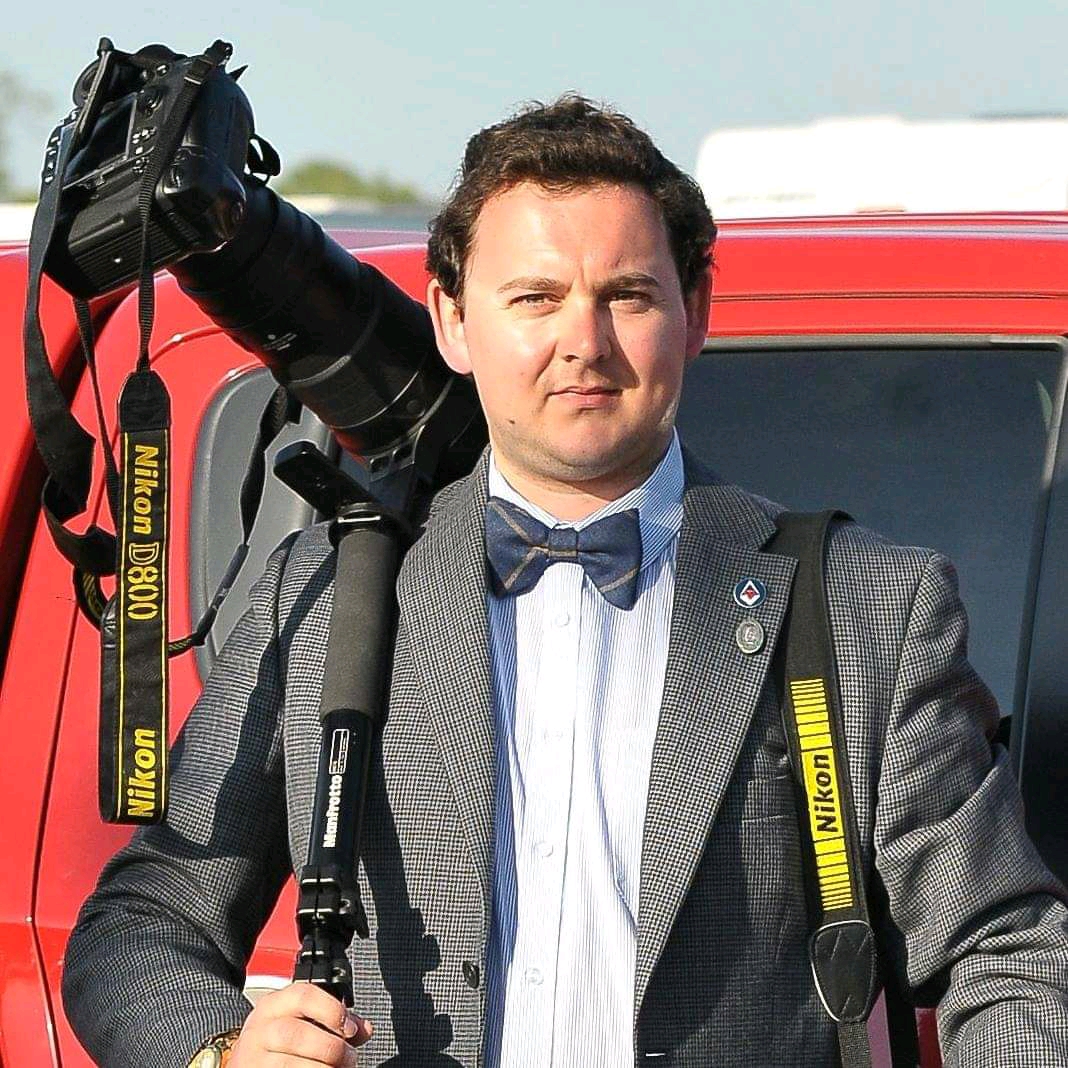
For nearly two decades Sebastian's work has been published internationally. Originally specializing in Equestrianism, his visuals have been used by the leading names in the equestrian industry such as The Fédération Equestre Internationale (FEI), The Jockey Club, Horse & Hound, and many more for various advertising campaigns, books, and pre/post-event highlights.
He is a Fellow of the Royal Society of Arts, holds a Foundation Degree in Equitation Science, and holds a Master of Arts in Publishing. He is a member of Nikon NPS and has been a Nikon user since his film days using a Nikon F5. He saw the digital transition with Nikon's D series cameras and is still, to this day, the youngest member to be elected into BEWA, the British Equestrian Writers' Association.
He is familiar with and shows great interest in 35mm, medium, and large-format photography, using products by Leica, Phase One, Hasselblad, Alpa, and Sinar. Sebastian has also used many cinema cameras from Sony, RED, ARRI, and everything in between. He now spends his spare time using his trusted Leica M-E or Leica M2, shooting Street/Documentary photography as he sees it, usually in Black and White.
- Gavin Stoker
- Lauren ScottFreelance contributor/former Managing Editor
